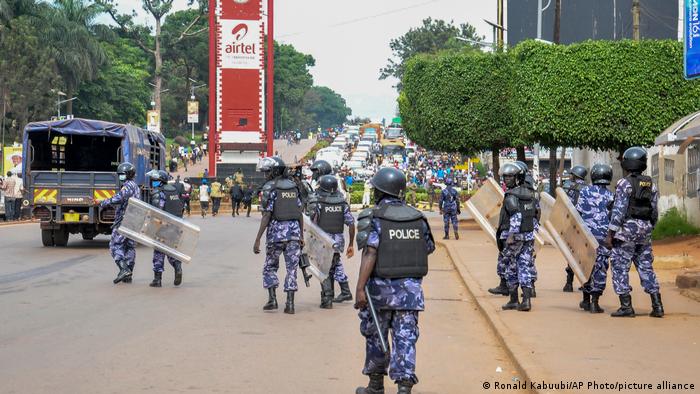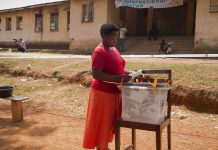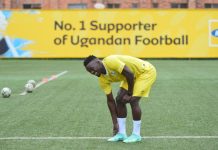By Faridah N Kulumba
Africa-Press-Uganda Uganda is a constitutional republic led since 1986 by President Yoweri Museveni of the National Resistance Movement (NRM) party. In 2016 voters re-elected Museveni to a fifth five-year term and returned an NRM majority to the unicameral parliament.
According to the Human Rights Report 2018, the elections fell short of international standards and were marred by allegations of disenfranchisement and voter intimidation, harassment of the opposition, closure of social media websites, and lack of transparency and independence in the Electoral Commission (EC). The periods before, during, and after the elections were marked by a closing of political space, intimidation of journalists, and widespread use of torture by the security agencies.
Human Rights abuse
Civilian authorities maintained effective control over the security forces. Human rights issues included reports of unlawful or arbitrary killings; forced disappearance; torture; arbitrary detention; political prisoners; violence and intimidation against journalists, censorship, criminalization of libel, and restricted access to the internet; substantial interference with the rights of peaceful assembly and freedom of association; restrictions on political participation; corruption; criminalization of same-sex consensual sexual conduct; and security force harassment and detention of lesbian, gay, bisexual, transgender, and intersex (LGBTI) persons.
Reluctance
The report added that the government was reluctant to investigate, prosecute, or punish officials who committed human rights violations, whether in the security services or elsewhere in government, and impunity was a problem.
MPs reaction
At the beginning of this month, Uganda’s opposition Members of Parliament walked out of Parliament in protest of continued brutal arrests and torture of Ugandans. This followed a video that went viral of a novelist Rukirabashaija Kakwenza stripping naked showing the scars of torture by the Special Forces Command (SFC). The Leader of Opposition Matthias Mpuuga raised a matter of national importance about the continued torture of Ugandans and unresolved pending updates on the release of political prisoners by the government.
Demand
The opposition wanted parliament to prioritise the debate on what the government is undertaking to protect the rights of innocent Ugandans. They later walked out after a disagreement with the Deputy Speaker Among over a report on missing Ugandans, including those in detention without trial and those alleged to have been tortured, saying that they cannot sit in parliament while some of their colleagues are suffering in jails. Among those in jail are two opposition MPs who were arrested about four months ago on allegations of murder.
Arbitrary Deprivation of Life and Other Unlawful Killings
The Human Rights report indicated that there were several reports the government or its agents committed arbitrary or unlawful killings, including due to torture.
Uganda Country Reports on Human Rights Practices for 2018 United States Department of State • Bureau of Democracy, Human Rights and Labor According to local media, between February 2017 and September, the Uganda Peoples Defense Forces (UPDF) killed at least nine men whom it accused of illegal fishing. On January 22, local media reported that the UPDF’s Marine Patrol Unit beat, shot, and drowned unarmed civilians it suspected of illegal fishing practices. Fishing communities told local media that UPDF soldiers tied weights to the legs of the fishermen and threw them into the lake.
Disappearance
Local media reported several disappearances of former presidential candidate Robert Kyagulanyi alias Bobi Wine’s supporters. On October 10 and 23, media reported that families of two Kyagulanyi supporters had reported the father and son missing for more than a week after unidentified men picked them up at their homes. The UPF and UPDF denied knowledge of their detention.
The law
The constitution and law prohibit such practices. The Anti-Torture Act stipulates that any person convicted of an act of torture may be sentenced to 15 years’ imprisonment, a fine of 7.2 million shillings ($1,920), or both. The penalty for conviction of aggravated torture is life imprisonment.
Prison and Detention Center Conditions
Conditions in detention centers remained poor and, in some cases, life-threatening. Serious problems included overcrowding, physical abuse of detainees by security staff and fellow inmates, inadequate food, and under-staffing. Local human rights groups, including the ACTV, received numerous reports of torture by security forces and prison personnel. Reports of forced labor continued. Most prisons did not have accommodations for persons with disabilities. The Foundation for Human Rights Initiative (FHRI) reported that the domestic intelligence agency Internal Security Organization (ISO) also maintained unofficial detention facilities in and around Kampala where it detained suspects without charge.
Arbitrary Arrest or Detention
Although the law prohibits arbitrary arrest and detention, security forces often arbitrarily arrested and detained persons, including opposition leaders, politicians, activists, demonstrators, and journalists. The law provides for the right of persons to challenge the lawfulness of their arrest or detention in court, but this mechanism was seldom employed and rarely successful.
Arrest Procedures and Treatment of Detainees
The law requires that judges or prosecutors issue a warrant before an arrest is made, unless the arrest is made during commission of a crime or while in pursuit of a perpetrator. Nevertheless, authorities often arrested suspects without warrants. The law requires authorities to arraign suspects within 48 hours of arrest, but they frequently held suspects longer without charge. Authorities must try suspects arrested under the Anti-terrorism Law within 120 days (360 days if charged with a
Denial of Fair Public Trial
The constitution and law provide for an independent judiciary, but the government did not always respect this provision. Corruption, under-staffing, inefficiency, and executive branch interference with judicial rulings often undermined the courts’ independence. In response to a Constitutional Court ruling that scrapped a parliamentary and presidential term extension that parliament had earlier passed, the president on July 30 wrote that “the judges are not in charge of the country,” and that he and his party would effect the legislative changes they wanted “judges or no judges.”
Political Prisoners and Detainees
During the last five years authorities detained numerous opposition politicians and activists on politically motivated grounds. Authorities released many without charge but charged others with crimes including treason, unlawful possession of firearms, inciting violence, holding illegal meetings, and abuse of office. No statistics on the number of political detainees or prisoners were available.
Refuting allegations
The Internal Affairs Ministry refuted the claims of torture and imprisonment without trial, and promised to submit a report this month. While reacting to the opposition MPs act of storming out of parliament, ruling party lawmaker Simon Silwany criticized the opposition, saying all members of parliament are against torture and mistreatment of Ugandans but it is wrong for the opposition to walk out because the only platform that the lawmakers can discuss issues is parliament.






